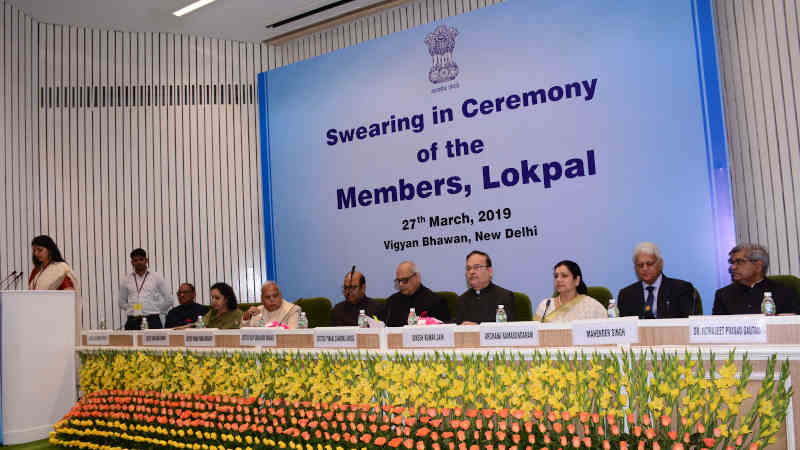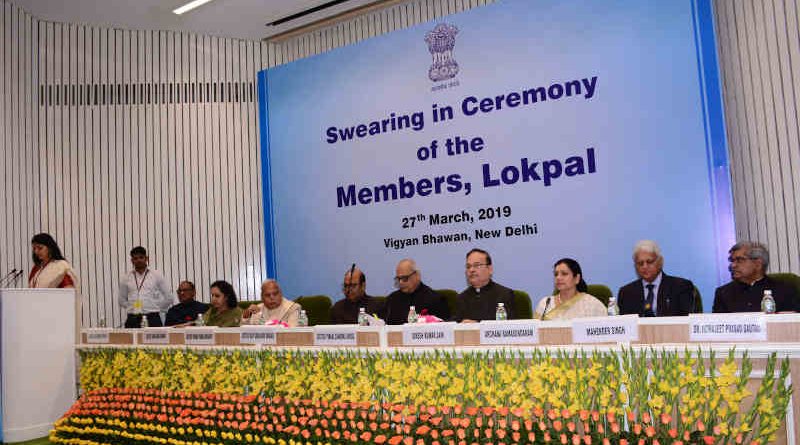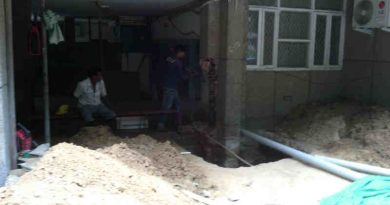Flawed Online Corruption Complaints Management Platform of Lokpal

While Lokpal should direct other anti-corruption departments to further simplify their complaints filing and monitoring systems to reduce corruption in India, it has decided to make its own system awfully complicated.
By Rakesh Raman
Since all the so-called anti-corruption departments of India are full of unskilled and complicit officials, corruption has been increasing exponentially in all parts of the country. This fact is once again manifested by India’s top anti-corruption authority Lokpal, as it has launched a torturous online complaints management interface.
Lokpal chairperson, Justice Pinaki Chandra Ghose, launched on December 13, 2021 the website for receiving corruption complaints after almost 3 years of the formation of Lokpal. The Lokpal Online platform allows complainants to create their user accounts and file their complaints after giving their personal details.
Although it is supposed to be a digital facility to help citizens send their complaints conveniently, it is such a ridiculous system that it still forces complainants to send a bundle of paper documents by post. Since Lokpal, courts, and other government departments in India are run by untrained and unqualified bureaucrats, they cannot fully embrace technology to establish paperless offices.
These official parasites – who thrive on public money – fail to understand that the use of paper has to be discouraged in all situations to protect the environment. In the case of Lokpal, for example, all the documents – such as the complaints form, affidavit, etc. – that it demands in the paper form can easily be accepted online.
After giving the details online, a complainant should not be forced to send paper documents with the same details. But Lokpal – like other Indian offices – does not want to work in a modern technology-based environment. Its cumbersome complaint filing system will further discourage the complainants who want to fight against corruption. In order to simplify the procedure, Lokpal should allow the complainants to file their complaints in Portable Document Format (PDF).
Although other bureaucratic outfits of India do not work honestly, they still offer the option to complainants to file their complaints as PDF files. They include the Central Vigilance Commission (CVC) of India, Centralized Public Grievance Redress And Monitoring System (CPGRAMS) of the Government of India, National Human Rights Commission (NHRC) of India, and the state-level Public Grievance Monitoring Systems (PGMSs).
While Lokpal should direct other anti-corruption departments to further simplify their complaints filing and monitoring systems to reduce corruption in India, it has decided to make its own system awfully complicated. Lokpal has failed to understand that there are many complaints that cannot be filed in the fixed document structure and they need a flexible framework for compilation.
After giving their personal information (name, address, etc.) online, a complainant should be allowed to file their complaints as well as additional applications (if any) as digital / PDF files. The immediate need is to usher in truly paperless offices in India.
Speaking on the occasion of launching the website, Justice Pinaki Chandra Ghose said that corruption is a key element in underperformance of the economy and it undermines democracy and rule of law. “Lokpal Online is an end-to-end digital solution for the management of complaints against public servants filed under the Lokpal and Lokayuktas Act, 2013,” he added, although it is not an end-to-end digital solution.
Since the introduction of the new web facility is a flawed exercise, Lokpal should take expert advice to create a truly interactive interface and simplified processes to handle corruption complaints. And the focus should be on transparent investigations and maximum convictions of corrupt officials.
By Rakesh Raman, who is a national award-winning journalist and social activist. He is the founder of a humanitarian organization RMN Foundation which is working in diverse areas to help the disadvantaged and distressed people in the society. He also runs “Clean House” anti-corruption service to report about crime and corruption happening in Delhi’s cooperative group housing societies (CGHS).






